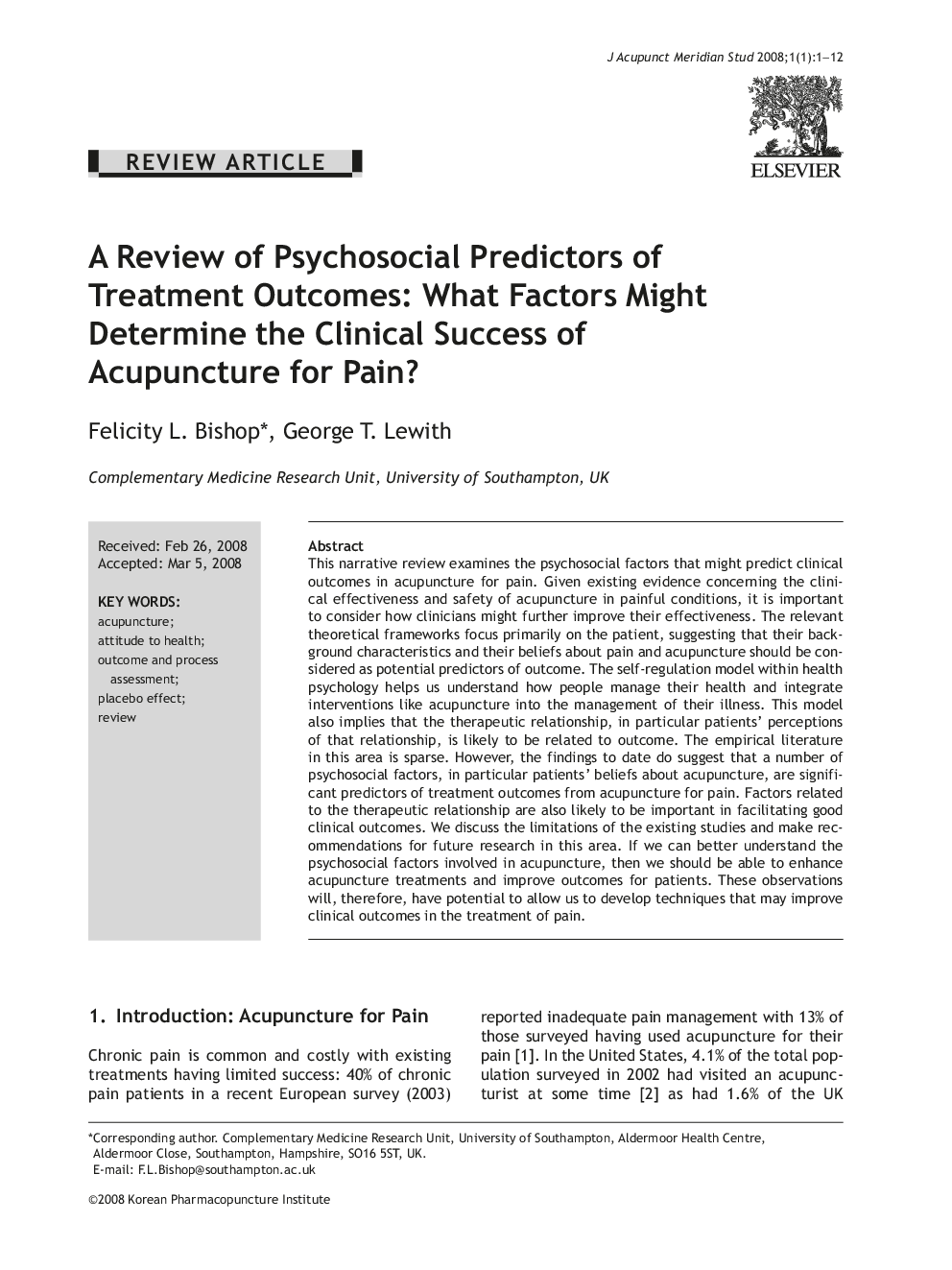| Article ID | Journal | Published Year | Pages | File Type |
|---|---|---|---|---|
| 3098809 | Journal of Acupuncture and Meridian Studies | 2008 | 12 Pages |
This narrative review examines the psychosocial factors that might predict clinical outcomes in acupuncture for pain. Given existing evidence concerning the clinical effectiveness and safety of acupuncture in painful conditions, it is important to consider how clinicians might further improve their effectiveness. The relevant theoretical frameworks focus primarily on the patient, suggesting that their background characteristics and their beliefs about pain and acupuncture should be considered as potential predictors of outcome. The self-regulation model within health psychology helps us understand how people manage their health and integrate interventions like acupuncture into the management of their illness. This model also implies that the therapeutic relationship, in particular patients' perceptions of that relationship, is likely to be related to outcome. The empirical literature in this area is sparse. However, the findings to date do suggest that a number of psychosocial factors, in particular patients' beliefs about acupuncture, are significant predictors of treatment outcomes from acupuncture for pain. Factors related to the therapeutic relationship are also likely to be important in facilitating good clinical outcomes. We discuss the limitations of the existing studies and make recommendations for future research in this area. If we can better understand the psychosocial factors involved in acupuncture, then we should be able to enhance acupuncture treatments and improve outcomes for patients. These observations will, therefore, have potential to allow us to develop techniques that may improve clinical outcomes in the treatment of pain.
